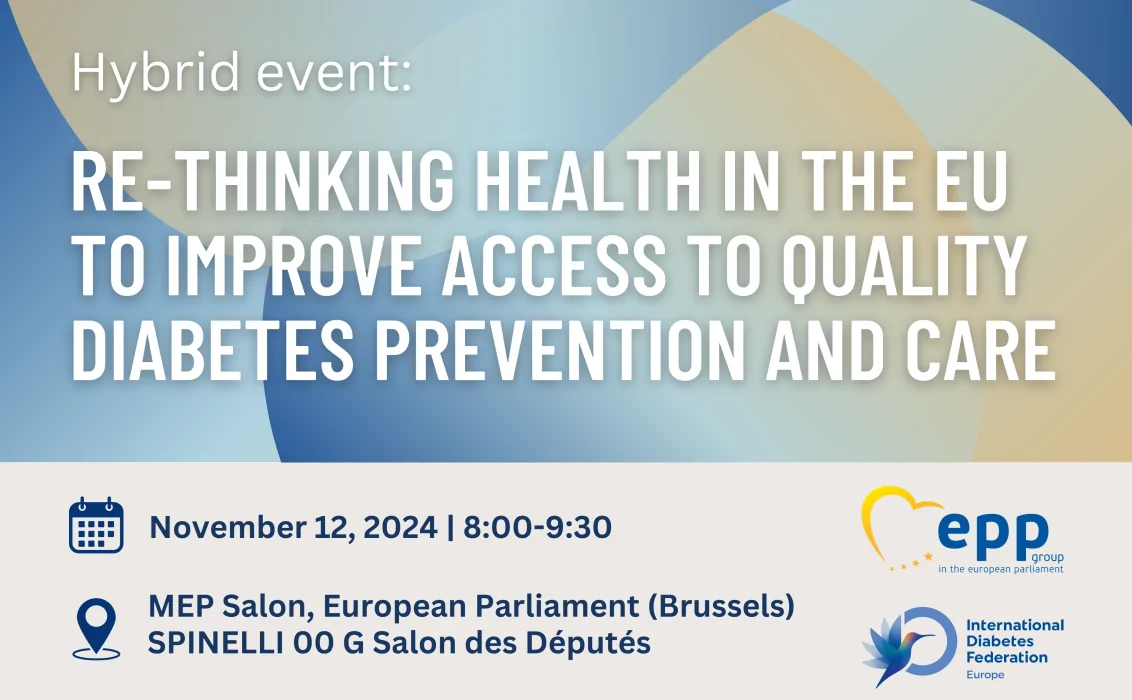It is important to remember that diabetes continues to increase and that much more can and must be done to reduce its impact in Portugal. We cannot let our guard down in the relentless fight against this pandemic.
With the pandemic crisis, our health system showed its structural weaknesses, struggling with the shortage of human resources and the growing inequality in access to care.
The growing burden of chronic diseases and the recognition of diabetes as a priority require social, structural and organizational changes. It is time to act now! World Health Organization says it, the European Union confirms this.
Diabetes is a complex disease. It is one of the leading causes of mortality and causes many of the disabilities most feared by all of us. Evidence shows us that the implementation of prevention measures can reduce the risk of developing diabetes and that investment in screening, early diagnosis and access to multidisciplinary and integrated health care, among other measures, can help to reduce or delay the risk of the consequences associated with the disease, such as myocardial infarctions, strokes, renal failure, blindness and lower limb amputation.
A global and different response to diabetes is the challenge that the Associação Protetora dos Diabéticos de Portugal poses to the next government. A response based on 5 strategic steps to deal with chronic diseases, in particular with diabetes:
- The first is to find out the number of people living with diabetes, through the development of systems for registering and sharing health data, at national and European level. Only in this way will we be able to define policies adapted to our reality with a view to reducing the risk of diabetes and creating management and care programs.
- The second is to know where they live, reinforcing screening and early diagnosis programs, as well as educational and motivating intervention programs for self-care for the disease, together with local authorities, communities, the different actors of civil society and health care. proximity health.
- The third is to know how they are supported, ensuring the integration of chronic diseases not only in the health agenda, but mainly in the social and development agenda. Social factors (poverty, poor urban planning, poor working conditions, for example) are associated with more and more serious forms of the disease. Support and social support integrated with health responses are essential for people with chronic diseases to achieve positive health outcomes.
- The fourth is knowing how to prevent, implementing public policies that address modifiable risk factors to help reduce the risk or delay the development of diabetes and its consequences. This is the case of policies to promote active life, access to healthy food and support for the production of healthy food products, among others.
- Finally, improving diabetes care and management Proximity healthcare professionals are the best positioned to respond to people’s needs. Investment in integrated primary care is essential to ensure that people with diabetes live long, healthy lives. This investment should include the development of education skills and the implementation of multidisciplinary consultations in proximity health structures.
These are the points, which, by working together, will enable the necessary change to effectively combat diabetes and chronic diseases, leading to a healthier society. For this response to exist, a different framework is also needed, with the capacity to define, implement, monitor and disseminate the measures and their results.
Someone said: if you want to know what a country’s health service is like, ask them how they treat diabetes. It’s not the question we need to address. It is the answer! This is the challenge for the next Government. And in this challenge, APDP wants to be in the first line again.
Read the original article in Portuguese here.



